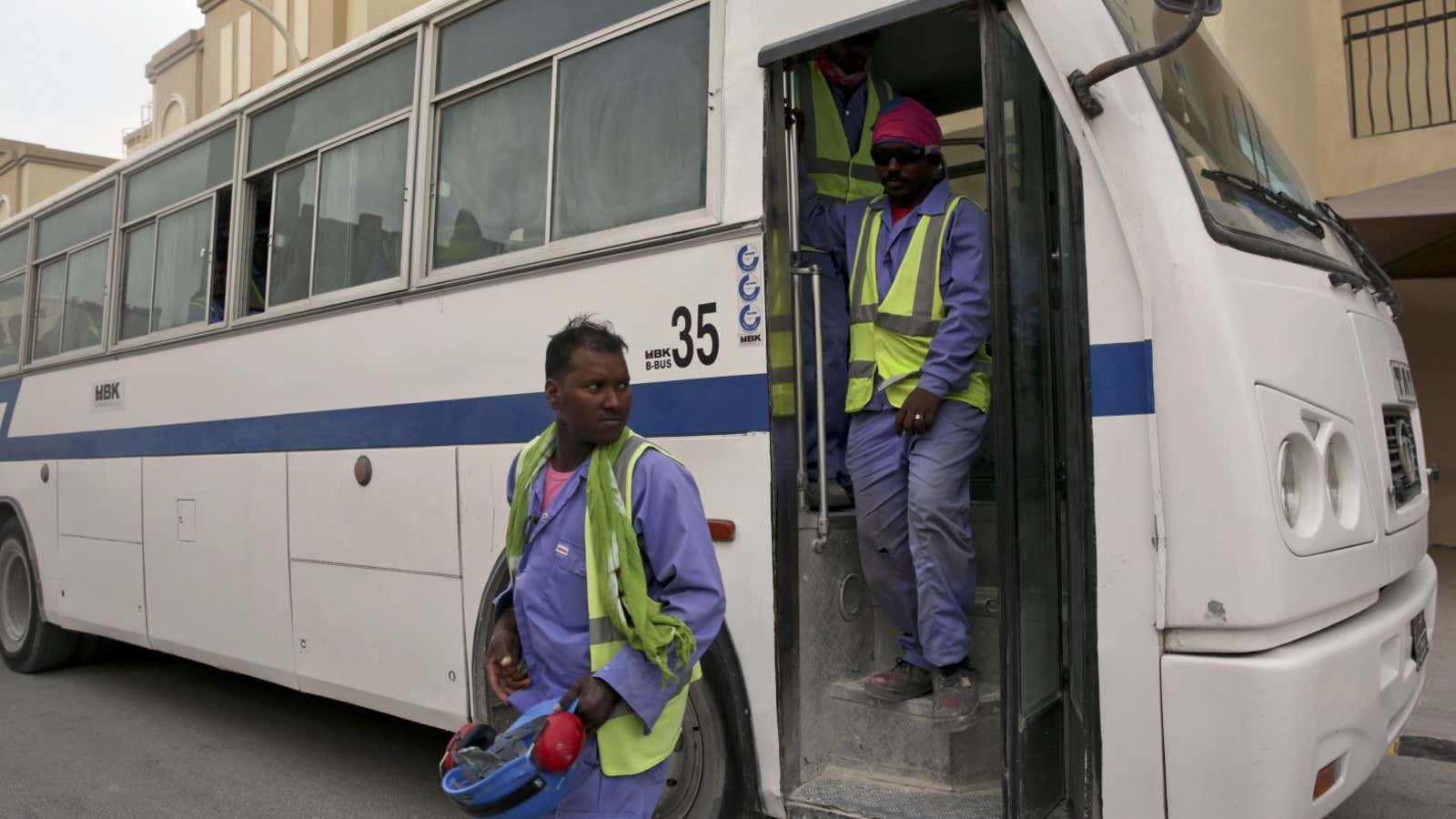Qatar, one of the world’s richest countries and the winner of the bid to host the soccer World Cup in 2022, has for months been criticized for mistreating migrant workers involved in construction for the sports event. A team of BBC journalists who was invited to Qatar, in part to dispel this bad press, say they were taken on a tour of villas and swimming pools built for workers—and then were arrested, interrogated, and imprisoned.
Mark Lobel, the BBC’s Middle East business correspondent, wrote about his team’s experience, which came after the BBC arrived in Doha by invitation of the prime ministers’ office and through the arrangements of a London-based public relations firm called Portland Communications.
The ordeal began, Lobel said, when they were en route to film a group of workers from Nepal, which provides much of Qatar’s low-paid migrant labour. The BBC’s vehicles were surrounded, and the team was ordered out into the street where they were frisked, had their equipment confiscated, and were taken to the city’s main police station custody for questioning.
“The cameraman, translator, driver, and I were interrogated separately by intelligence officers,” Lobel wrote. “The questioning was hostile. We were never accused of anything directly, instead they asked over and over what we had done and who we had met.”
The police showed photos of Lobel standing around having coffee, and he realized he had been followed by the police for two days since he arrived in Qatar’s capital. “In perfect English and with more than a touch of malice, he threatened us with another four days in prison—to teach us a lesson,” the journalist said. Lobel added:
Thirteen hours of waiting around and questioning later, one of the interrogators snapped. “This is not Disneyland,” he barked. “You can’t stick your camera anywhere.”
He said the journalists were suddenly released after being held for two days, and that, as of today, the BBC’s equipment had not been returned.
This isn’t the first arrest of a camera crew trying to film working conditions in Doha. In March, German journalist Florian Bauer and his team were arrested (link in German) and had their equipment confiscated. It was returned four weeks later with all the data deleted.
Qatar has been heavily criticized for mistreating Nepalese workers. In 2013, the Guardian wrote an exposé on the “slave” conditions that saw scores of workers dying of heart failure and in workplace accidents, as well as suffering from brutal conditions, lack of payment, and the confiscation of passports.
Update, May 18: The Qatari government later issued a statement saying that the BBC team had been arrested because in the course of their investigation they “trespassed on private property, which is against the law in Qatar just as it is in most countries.” Fifa, the international football association, said it was investigating the reports.
